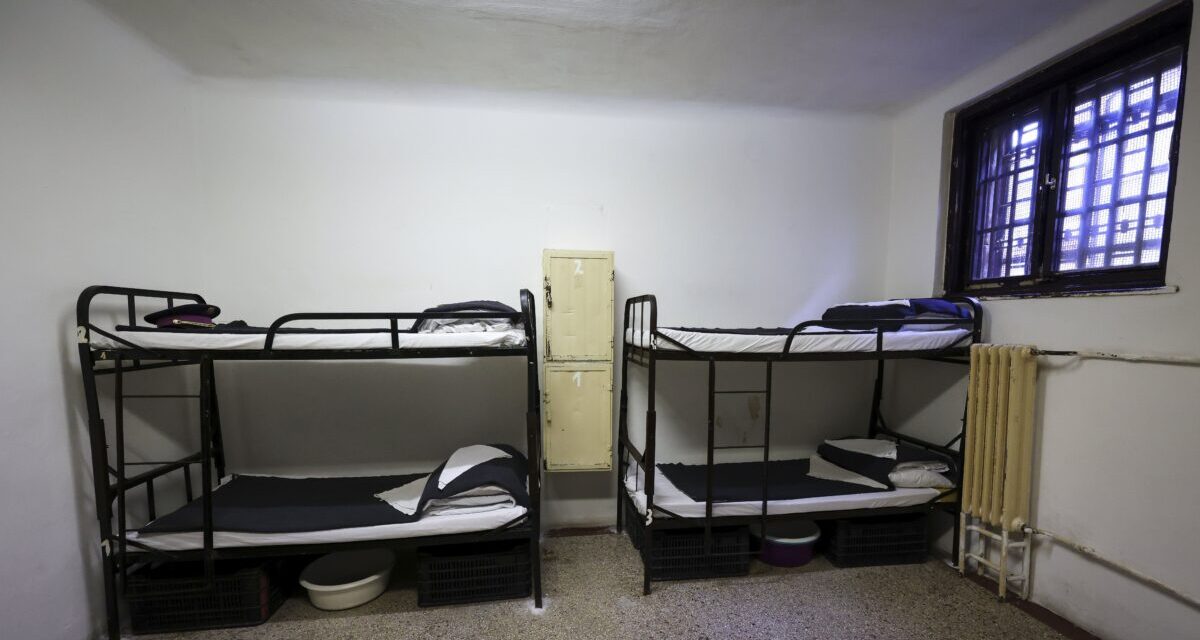There is a very simple solution so that poor foreign anti-fascist grooms and brides who beat people in the street do not have to complain to the Hungarian courts and prisons. Written by Zoltán Veczán.
As a reminder: about a year ago, far-leftists arrived in Budapest with the aim of carrying out quick, even life-threatening, attacks in the city. It was around this time that the Eruption Day commemorations were held (in memory of the Hungarian and German soldiers who broke out of the Soviet siege ring from Buda Castle), where a mixed and sometimes merging group used to gather, from the dwindling relatives of the former fallen, to history buffs and traditionalists of all kinds, to supporters of extreme right-wing ideologies.
Therefore, in connection with the negotiations, in order to protect her personal rights, the anti-fascist Italian woman, addressed only with the IS monogram, and her mainly German colleagues decided to strike now.
And of course, they didn't just go to protest against the people gathered on the day of the outbreak, but specifically to "beat Nazis". And they will tell you who is a "Nazi"...
Their working method was to cover their faces and hands, preferably from behind, and surprise people believed to be far-right based on their clothing. They beat and beat the victim on the ground with all their might for thirty seconds, then their leader gave a signal and fled the scene.
They carried out a total of five such attacks, hitting their victims with vipers and rubber hammers, blowing them with gas spray, and prodding their victims with pens; before the sixth, they were finally shut down by the police.
The preparatory hearing was held a few days ago, the main defendant, the Italian IS, who by the way is a 39-year-old teacher from Milan (!), entered the courtroom grinning, leading the way - and part of the Italian press and politicians freaked out that he was "beaten on a chain like a dog".
Lawyers and outside cheering audiences have long been doing everything they can to somehow make a victim out of him; one of my favorite sentences was from lawyer György Magyar, who told Magyar Hang: "My client is having a hard time bearing the conditions of his detention. He feels that he was unnecessarily kept under such strict supervision. In the beginning, contact with his parents was also not allowed. He is seen as an international terrorist".
According to others, the cells are smelly and full of bugs, and the guards are not polite enough, in short: the far-left cadres who killed six people in cold blood were not housed in the Kempinsky, and they were not even rolled out a red carpet during the trial, even though it would have been expected...
One of my first thoughts was regret. I mean: I was sorry that IS and his friends ran into their not "worthy" opponents - the far-right bald guys who were hunting humanists with forty kilos of antifa in the vicinity of the Buda Castle at the same time - probably everyone who was not into physical violence would have been better off with that, even sees destruction as the solution to silencing the political opponent.
In other words, the normal majority who - come to think of it - don't travel a thousand kilometers to beat up others who think differently than they do.
By the way, with the characteristic way of committing the whole thing - pre-planned, blood-professed, risk minimization (from behind, ambushed, outnumbered, with a covered face, cruelly, causing as much injury as possible - on the street, this is called vile cowardice, but whatever) - they succeeded in efficiency, morally on the other hand - if we can talk about such a thing in this dimension at all - they should also be inferior to the far-right hooligans and the primitive street manhunts they pursue (there is rarely a plan based on what we have experienced so far, isn't there a strategy, only violence and barbaric instincts).
In addition, their victims were chosen randomly throughout the city based on their clothing, i.e. they did not want to destroy well-known, truly far-right figures, but rather to intimidate them. They wanted to send the message "woe to you if we are at all mistaken for the Nazis".
If this is not pure terrorism, I don't know how to define it.
And my second thought was how flexible this moral is. In other words, in a corner of the public, all kinds of human rights will suddenly be available to those who disregard the right to physical integrity and life of others. What's more, they typically always discover the good person who lives deep inside them, who recently, as speakers of another virtual lynch mob, rejoiced at the conviction of a person belonging to a political opponent and how bad it will be for him in prison.
The third thought, in connection with this, is that this should be addressed somewhere: I mean, that some of the Italian politicians and the press are obsessed with the conditions of detention, that is, the Italians pay attention to their own, like this deviant bambina, to whom the mamma will distribute it at home the appropriate slaps, but no one else can touch it.
Don't get me wrong, I wouldn't be happy if Hungarian (citizen) pimps, rapists, mobsters in London were to be excused by the Hungarian public, in fact.
On the other hand, I would appreciate it if we could reach a consensus at home, regardless of political parties, regarding the foreign terrorists who visit here with the aim of beating others, be they anti-fascists or neo-Nazis, at least to the extent that they go home to Weimar and play with their own mobs - even if the police there let them. Because we certainly don't ask them to.
Cover image: The eight-person cell of the Italian woman accused of the crime of armed violence against a member of the community and serious bodily injury in the so-called anti-timber case at the press conference of the National Penitentiary Command (BVOP) of the Capital II Penitentiary Institute.
In its object, Gyorkogsi utca, on January 31, 2024. The BVOP rejects the media claims that the 38-year-old Italian woman is being held in indecent conditions as untrue. Source: MTI/Róbert Hegedüs












